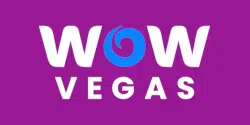Florida Online Casinos
Florida has a robust gambling industry spanning numerous in-person and online wagering options aside from one glaring exception: there are no online casinos.
However, the Seminole Tribe is rumored to be planning to renegotiate its gaming compact with the state (again) to authorize online gambling. If those early reports are accurate, the Seminoles could launch the first Florida online casinos within the next year or two.
Until Florida legalizes online gambling, sweepstakes casinos will remain the closest alternative for residents.
 35 Free Sweepstakes CoinsWOW Vegas Promo Code: None Needed
No purchase necessary. Void where prohibited by law. 18+, T&Cs Apply. Gambling Problem? Call 1-800-GAMBLER
35 Free Sweepstakes CoinsWOW Vegas Promo Code: None Needed
No purchase necessary. Void where prohibited by law. 18+, T&Cs Apply. Gambling Problem? Call 1-800-GAMBLER
 25 Stake Cash + 250K Gold CoinsStake.us Promo Code: Not Needed
No purchase necessary. Void where prohibited by law. 21+, T&Cs apply. Gambling problem? Call 1-800-GAMBLER
25 Stake Cash + 250K Gold CoinsStake.us Promo Code: Not Needed
No purchase necessary. Void where prohibited by law. 21+, T&Cs apply. Gambling problem? Call 1-800-GAMBLER
 250,000 GC + 25 Free SCCasino.Click Promo Code: None Needed
Gameplay can be harmful if not kept in control, please play responsibly. See https://casino.click/responsible-gaming. NO PURCHASE NECESSARY to enter Sweepstakes. SWEEPSTAKES ARE VOID WHERE PROHIBITED BY LAW. See T&Cs. Casino Click Social Gaming Platform is only open to Eligible Participants, who are at least eighteen (18) years old or the age of majority in their jurisdiction (whichever occurs later) at the time of entry. For detailed rules, see https://casino.click/sweeps-rules.
250,000 GC + 25 Free SCCasino.Click Promo Code: None Needed
Gameplay can be harmful if not kept in control, please play responsibly. See https://casino.click/responsible-gaming. NO PURCHASE NECESSARY to enter Sweepstakes. SWEEPSTAKES ARE VOID WHERE PROHIBITED BY LAW. See T&Cs. Casino Click Social Gaming Platform is only open to Eligible Participants, who are at least eighteen (18) years old or the age of majority in their jurisdiction (whichever occurs later) at the time of entry. For detailed rules, see https://casino.click/sweeps-rules.
With lawmakers and local stakeholders primarily focused on sports betting in recent years, there have been no serious efforts to regulate online casinos in Florida.
However, now that the sports betting issue has been resolved, the key players who will guide future Florida online gambling discussions have a lot more time on their hands to focus on other matters.
Sweepstakes Casinos in Florida
Florida residents can use sweepstakes gambling sites to play casino-style games like slots and blackjack for real prizes, all with no purchase necessary.
Recommended Florida sweepstakes casinos:
Social casinos operate under US sweepstakes laws, which allow them to offer games without requiring cash wagers. Instead, players use virtual currencies to participate and can redeem winnings for cash prizes.
However, players should know that Florida sweepstakes gambling sites operate in a legal grey area. The state does not actively prohibit sweepstakes casinos, but they face increasing scrutiny and a growing number of civil lawsuits in numerous states, including Florida.
Florida Law on Sweepstakes Casinos
Florida is one of a few states that regulate sweepstakes-style promotions.
More specifically, FL Stat § 849.094 regulates “game promotion in connection with [the] sale of consumer products or services.”
The law emphasizes consumer protection, including several provisions that require operators to:
- File with the Florida Department of Agriculture and Consumer Services (FDACS) seven days before holding sweepstakes with prizes exceeding $5,000.
- Maintain a surety bond or statement of trust to ensure they can pay all promised prizes to winners.
- Provide mechanisms for contestants to participate for free and with no purchase necessary.
The law does not specifically target sweepstakes casinos, but it still applies to their operations in Florida. For example, most sweepstakes casinos in Florida limit the maximum win in any single instance to $5,000 due to the seven-day filing requirement noted above.
Here’s an excerpt from one popular sweepstakes casino:
“In Florida, the maximum redemption value of Stake Cash prize won on any one Game or play, via a Participant’s participation in the Sweepstakes is USD$5,000. Any redemption of a Prize valued in excess of USD$5,000 will not be allocated or paid.”
Other Gambling Laws Still Apply
Although reputable social casinos comply with Florida’s sweepstakes rules, they’re not immune to other gambling-related laws.
FL Stat § 849.094(8)(b) explains:
“Compliance with the rules of the Department of Agriculture and Consumer Services does not authorize and is not a defense to a charge of possession of a slot machine or device or any other device or a violation of any other law.”
Increasingly, the legality of sweepstakes casinos in Florida is coming under question despite compliance with the provisions outlined above.
Knapp v. VGW Holdings Ltd.
A lawsuit filed in Florida against VGW Holdings (the parent company of Global Poker and Chumba Casino) highlights the legal questions sweepstakes operators face nationwide.
Knapp v. VGW Holdings Ltd. accuses VGW Holdings of:
- Violating FL Stat §§ 849.08, 849.14, which prohibit unlicensed lotteries and wagering anything of value on games of chance
- Violating FL Stat § 502.201, the Florida Deceptive and Unfair Trade Practices Act, by misrepresenting illegal gambling games as legal sweepstakes
The lawsuit also accuses WorldPay Inc., VGW’s payment processor, of violating FL Stat §§ 849.29, which deals with recovering gambling losses from third parties involved in illegal gambling agreements.
Knapp v. VGW Holdings, Ltd., is scheduled for mediation or trial in 2025. A ruling against VGW Holdings could permanently shut down sweepstakes casinos in Florida.
See this piece by gaming attorneys James Meggesto and Samir Patel for an excellent explanation of the case and its implications for sweepstakes casino operators.
Will Florida Legalize Online Gambling?
The odds that Florida will legalize online gambling are improving.
Florida has not witnessed any serious attempts to legalize online casinos since legalizing sports betting, but the Seminole Tribe may be preparing to make a push soon.
As Ryan Butler reported from the 2024 National Council of Legislators from Gaming States (NCLGS) Winter Meeting, the Seminoles “are set to discuss a compact deal in 2025 that would allow online casino gaming…”
Additionally, legalizing sports betting improved the odds of legalizing online gambling in several respects:
- Florida’s stakeholders, particularly the Seminole Tribe and pari-mutuel operators, have more time to take up other initiatives now that they’ve resolved the multi-year legal battle over sports betting.
- The successful deployment of online sports betting and the revenue it generates makes online gambling an easier sell to the public and Florida lawmakers.
- Florida has gained regulatory experience, and the Seminoles have gained operating experience.
However, Florida’s unique gambling landscape complicates the path to legalization. Thus, it is impossible to predict with any certainty when the first Florida online casinos will launch.
Key Challenges to Legal Online Gambling in Florida
Several factors could complicate any efforts to legalize online gambling in Florida.
However, the Seminole Tribe has indicated it may be amenable to forming partnerships with commercial operators to offer online gambling in Florida.
In that case, any remaining challenges become insignificant, and Florida may have a straightforward path to legalizing online casinos via compact renegotiations.
If those reports are accurate, the first legal and licensed Florida gambling sites may launch sooner than expected.
That said, there are still numerous obstacles that could trip up any efforts to legalize online gambling, particularly in the absence of a united tribal-commercial operator front.
How the Florida Online Gambling Market May Operate
Although Florida could approach legal online gambling in any number of ways, the simplest path lies with the Seminole Tribe and the “hub and spoke” model implemented in their 2021 gaming compact with the state.
The hub-and-spoke model offers several advantages to the tribe and state that will make it an attractive option when Florida legalizes online gambling:
- Battle Tested: Florida used the hub-and-spoke model successfully to legalize online sports betting without triggering a constitutional amendment
- Tribe-Friendly: Even if the state opts for an open market, the Seminoles retain significant control because all wagers placed with Florida online casinos must pass through servers on tribal land
- Cost Effective: The tribe and state could leverage the existing infrastructure and regulatory framework for sports betting for cost and time savings
- Regulator-Friendly: The “hub” in the hub and spoke model makes it easier for Florida regulators to monitor compliance with the gaming compact
Based on the Florida sports betting approach, recent reports on the Seminole Tribe’s plans, and models implemented in other states, the Florida online gambling framework could take one of several formats:

